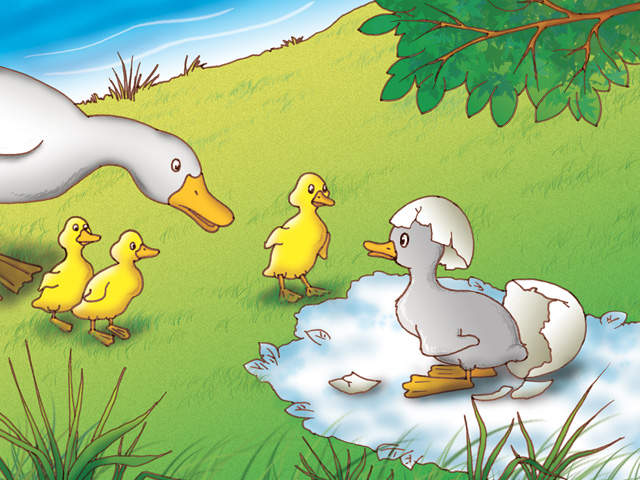Boring, bored... (B1)
Adjectives ending in -ING or -ED (377)
Přídavná jména s -ING nebo -ED
Na Landigo si dnes vysvětlíme, jaký je rozdíl mezi dvojicemi přídavných jmen zakončených na -ING nebo -ED. Jako např. BORING a BORED nebo ANNOYING a ANNOYED.
Přídavná jména s -ING nebo -ED – procvičování:
Porovnejte:
|
a boring book
|
nudná/nezábavná kniha |
|
a bored girl
|
znuděná dívka |
|
an annoying problem
|
nepříjemný problém |
|
an annoyed girl
|
naštvaná dívka |
The movie was incredibly boring. Everybody was bored. = Film byl neuvěřitelně nudný. Všichni byli znudění.
| Nudný: |
The movie was boring.
|
| Znuděný: |
Everybody was bored.
|


Přídavná jména s -ING (boring, annoying, surprising...) obvykle používáme, když někdo/něco vyvolává nějaký pocit:
|
The end of the movie was quite surprising.
|
Konec filmu byl docela překvapivý. |
|
Are the instructions confusing?
|
Jsou ty instrukce matoucí? |
Přídavná jména s -ED (bored, annoyed, surprised...) používáme, když na nás někdo/něco působí nebo díky tomu máme nějaký pocit:
|
The movie was good. I was surprised.
|
Film byl dobrý. Byl jsem překvapený. |
|
Are you confused by the instructions?
|
Jsi z těch instrukcí zmatený? |
-ING je spíše aktivní/činná forma, která něco způsobuje. -ED je pasivní forma, která děj pouze přijímá:
|
The movie is boring. It makes me bored.
|
Film je nudný. Nudím se u něj. |
|
The end was surprising. I was surprised by it.
|
Konec byl překvapivý. Velmi mě překvapil. |
|
The instructions are confusing. They make me confused.
|
Pokyny jsou matoucí. Jsem z nich zmatený. |
Porovnejte:








































Are you disappointed about the disappointing interview?
|
Are you disappointing disappointed about the disappointed disappointing interview?
|


The parents must be happy. Your grades are more than satisfying.
| Uspokojivé: |
They're satisfied satisfying.
|


How satisfied are you with our service?
| Spokojení: |
Are you satisfying satisfied?
|


I was shocked to hear what Chris had done. What shocking news!
| Šokovaný: |
I was shocked.
|
| Šokující: |
What shocking news!
|


We're going to spend a few relaxing days in the mountains. I can't wait!
| Odpočinkový: | We'll spend a few relaxed relaxing days... |


This hot weather makes me tired and sleepy.
| Unavený: |
It makes me tired.
|
| Unavující: |
The weather is tiring.
|


Was the blind date as embarrassing as you expected? – Yes, I felt quite embarrassed.
|
Was it embarrassed embarrassing?
|
|
I felt embarrassing embarrassed.
|


Obecně platí, že slovíčka s -ING se používají spíše pro věci, zatímco slovíčka s -ED pro osoby:
|
a surprising end
|
překvapující konec |
|
a surprised man
|
překvapený muž |
|
confusing instructions
|
matoucí instrukce |
|
a confused woman
|
zmatená žena |
The children were surprised that German grammar is so confusing.
| Osoby: |
They were surprised.
|
| Věci: |
The grammar is confusing.
|


The traffic jam can be frustrating. Just stay calm and don't get frustrated.
| Věci: |
The traffic jam is frustrating.
|
| Osoby: |
Don't get frustrated.
|


The season finale was so thrilling! You didn't look thrilled though.
| Věci: |
The show was thrilling.
|
| Osoby: |
You didn't look thrilled.
|


Pozor, některá přídavná jména s -ING se používají pro věci i osoby:
|
a boring book
|
nudná kniha |
|
a boring teacher
|
nudný učitel |
|
an interesting document
|
zajímavý dokument |
|
interesting people
|
zajímaví lidé |
|
an annoying problem
|
nepříjemný problém |
|
an annoying colleague
|
nepříjemný kolega |
Tamara is the most annoying and boring person I know.
| Otravný: |
She's annoyed annoying.
|
| Nudný: |
She's bored boring.
|


Jonah sounds like an interesting person. Can you introduce me to him tonight?
| Zajímavý: |
He sounds interested interesting.
|


Doporučujeme si procvičit přídavná jména s -ING a -ED (adjectives ending in -ING and -ED) v našich cvičeních.
